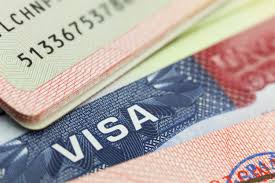EB-1
EB-1, or Employment-Based First Preference, is a US green card category designed for individuals with extraordinary ability or achievement in the sciences, arts, business, athletics, or education. This coveted visa offers a fast track to permanent residency, bypassing many of the complexities and lengthy waiting periods associated with other immigration categories. To qualify, applicants typically need to demonstrate sustained national or international acclaim, with evidence such as major awards, publications in prominent media, membership in prestigious associations, or documented evidence of original contributions of major significance. The process involves meticulous documentation showcasing the applicant's exceptional achievements and their impact on their field. While self-petitioning is possible, strong legal representation is highly recommended to navigate the stringent requirements and ensure a successful application. EB-1 is highly competitive, requiring substantial evidence to prove extraordinary ability, making it crucial to understand the specific criteria and prepare a comprehensive application. This section provides answers to frequently asked questions about the EB-1 process, helping you determine eligibility and understand the steps involved in pursuing this pathway to permanent residency in the United States.
How can I demonstrate that my peer review contributions have impacted my field for the EB-1 visa?
Could you provide examples of how an applicant can effectively demonstrate that their peer review work has advanced or influenced their field, as required for the EB-1 visa? Is publishing commentary or critique based on reviews an added advantage?

Can an EB-1 visa holder sponsor family members, and what are the associated requirements?
I’d like to know if an EB-1 visa holder can bring family members to the U.S. What are the requirements and benefits for dependents, and does this process differ significantly from other visa categories?

What are the potential career and residency benefits of obtaining an EB-1 visa compared to temporary work visas like H-1B?
Could you detail the advantages of an EB-1 visa over temporary work visas such as the H-1B regarding career growth, residency, and long-term opportunities in the U.S.? Are there any disadvantages?Please take it as EB-1 Vs H-1B

What challenges do EB-1 applicants face in using peer review as evidence of extraordinary ability?
What are the common issues or misconceptions EB-1 applicants face when using their peer review experience as evidence? How can I avoid potential pitfalls in documenting this aspect?

Does peer reviewing for international journals carry more weight for an EB-1 visa application?
Does reviewing research articles for internationally recognized journals (as opposed to regional or national journals) enhance my EB-1 application? Are there specific guidelines for documenting international peer review experience?

Related Tags
View AllMost Active
View All









